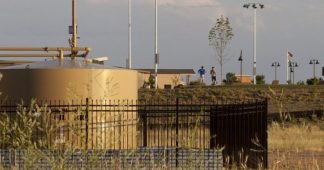By
Federal agencies would no longer have to take climate change into account when they assess the environmental impacts of highways, pipelines and other major infrastructure projects, according to a Trump administration plan that would weaken the nation’s benchmark environmental law.
The proposed changes to the 50-year-old National Environmental Policy Act could sharply reduce obstacles to the Keystone XL oil pipeline and other fossil fuel projects that have been stymied when courts ruled that the Trump administration did not properly consider climate change when analyzing the environmental effects of the projects.
According to one government official who has seen the proposed regulation but was not authorized to speak about it publicly, the administration will also narrow the range of projects that require environmental review. That could make it likely that more projects will sail through the approval process without having to disclose plans to do things like discharge waste, cut trees or increase air pollution.
The new rule would no longer require agencies to consider the “cumulative” consequences of new infrastructure. In recent years courts have interpreted that requirement as a mandate to study the effects of allowing more planet-warming greenhouse gas emissions into the atmosphere. It also has meant understanding the impacts of rising sea levels and other results of climate change on a given project.
The act requires the federal government to prepare detailed analyses of projects that could have significant environmental effects, including long-term impacts that courts have said include climate change. Since 1970, when the law was enacted, it has undergone only one major change. That was in 1983, when the White House Council on Environmental Quality limited the use of worst-case scenarios in project reviews.
Read more at https://www.nytimes.com/2020/01/03/climate











